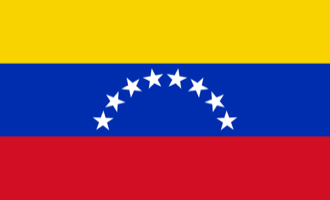Our new NorthStandard site is now live. There will be no new content or updates added to this site. For the latest information, please visit our new site north-standard.com.
Venezuela
Sanctions against Venezuela
Sanctions regimes imposed against the Venezuelan Government were first introduced by the US as a response to the Maduro Administration and violations of human rights in 2015, and were followed by the EU in 2017.
US Sanctions
US sanctions against Venezuela were first introduced by the EO 13692 of 8 March 2015, blocking property of certain persons contributing to the situation in Venezuela.
By the EO 13808 of 24 August 2017, the United States Department of the Treasury’s Office of Foreign Assets Controls (OFAC) implemented further restrictive measures against Venezuela, including asset freezes and a prohibition on US persons or anyone in the US from providing new debt to the Venezuelan Government with a maturity date greater than 30 days, or to Petróleos de Venezuela, S.A (PdVSA) with a maturity greater than 90 days.
As a result of this and to minimise the effect of these restrictions, the Venezuelan Government issued its own crypto-currency (the Petro) which backed the country’s petroleum reserves.
In response to this, OFAC issued EO 13827 of 19 March 2018 prohibiting ‘all transactions related to, provision of financing for, and other dealings in, by US persons or within the US, any digital currency, digital coin, or digital token, that was issued for, or on behalf of the Government of Venezuela on or after 9 January 2018’, which includes the Petro.
On 28 January 2019, OFAC specifically designated ‘Petróleos de Venezuela, S.A. (PdVSA), the Venezuelan state-owned oil company pursuant to EO 13850. As a result of that designation, all of PdVSA's property in the United States is blocked and US persons are generally prohibited from engaging in any transactions with PdVSA, unless there is authorisation from OFAC. To allow for US companies and individuals to wind down activities with PdVSA and other designated individuals/entities, OFAC provided several licences allowing some limited activities involving PdVSA. These licences can be found here.
As with all entities and individuals named on the SDN list, the restrictions mentioned above apply to entities 50% or more owned by PdVSA.
The EO 13850 provides the US Government with authority to impose blocking sanctions on 'any person' (which may include non-US persons) who is determined to have: '…materially assisted, sponsored, or provided financial, material, or technological support for, or goods or services to or in support of… any person whose property and interests in property are blocked pursuant to this order.'
On 5 August 2019, EO 13884, was issued which blocks the assets of the Government of Venezuela. It defines the Government of Venezuela broadly to include ‘any political subdivision, agency, or instrumentality thereof, including the Central Bank of Venezuela and any person owned or controlled, directly or indirectly by the foregoing’. The EO 13884 provides that US persons are generally prohibited from engaging in any transactions with the Government of Venezuela, while non-US persons can be subjected to sanctions if they provide material assistance to or goods or services in support of the Government of Venezuela.
EU Sanctions
On 13 November 2017, the Council of the EU adopted restrictive measures in view of the continuing deterioration of democracy, the rule of law and human rights in Venezuela (Regulation 2017/2063). Alongside asset freezes against targeted individuals, the EU has adopted other restrictive measures, including a prohibition on the export of arms and related material of all types, the export of equipment that might be used for internal repression to Venezuela as well as related technical or financial assistance and services.
EU sanctions no longer apply in the UK post Brexit (ie as of 11pm on 31 December 2020). The UK’s financial sanctions framework is now regulated by the Sanctions and Anti-Monetary Laundering Act 2018 (the Sanctions Act). The UK has introduced regulations under the Sanctions Act that broadly mirror EU sanctions against Venezuela. Further details are provided on the UK Treasury website.
We remind members that are considering trading to Venezuela that they will need to undertake extensive due diligence to ensure that the trade or activity is not subject to sanctions and that they do not trade with individuals or entities that are named on the US, EU or UK sanctions lists. It should be noted that any claims arising out of unlawful, prohibited or sanctionable carriage, trade or operation will not be covered under the club’s rules. If members have any queries regarding the above, they should contact their usual club contact.
Venezuela Knowledge & News
11 April 2018
Web Alert: US sanctions and Venezuelan crypto-currency
22 May 2018
Web Alert: United States imposes further sanctions against Venezuela
Useful Links

Key contacts
-
Ursula O'Donnell
Head of Claims - Offshore & Renewables
-
Anna Doumeni
Claims Director - Greece
-
Yassmin Hamzeh
Claims Executive - Middle East, India & Africa
View all key contacts
-
Ben Chandler
Claims Director - Asia Pacific
-
Ewa Szteinduchert
Head of P&I Claims - Mediterranean
-
Laura Ronan
Claims Director - Mediterranean
-
Peter Smith
Claims Senior Executive - Americas, UK & Ireland







